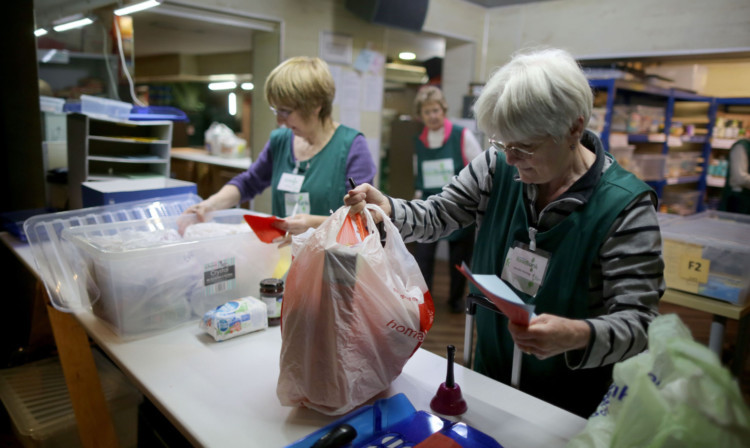
Charities claim money lenders are attempting to cash in on the misery of the vulnerable by targeting those queuing for emergency grocery parcels.
Officials from the national Illegal Money Lending Team are now working with food bank providers to stop needy people being snared.
Adrian Curtis of the Trussell Trust, which runs 408 food banks across the UK, warned: “People who come to us are often in short term crises, caused by a sudden change to their circumstances. They have a shortfall in available cash and don’t have money to go to the supermarket and buy food.
“These people are desperate some have learning difficulties and are exactly the sort of people illegal money lenders will target. We have heard some horrendous stories of vulnerable people with learning difficulties who have been subjected to virtual slavery by illegal money lenders.”
Illegal money lenders charge astronomical interest rates of up to 131,000% and use hard sell tactics to flog their loans. They also often force families to pay through intimidation and violence.
At some food banks, volunteers hand out biscuits stamped with an emergency number and packs urging victims to report loan sharks.
“Even if this stops just one client being enslaved by illegal money lenders, it would be a massive result,” said Mr Curtis.
Research shows that since May 2010 average wages are down an average of £1,600 across the UK, with Scottish pay packets falling by £1,292.
Food price inflation is now 12.6% and the use of food banks has increased 450%, according to figures published earlier this month. At the same time, a massive 310,000 households in the UK are in debt to loan sharks, up from 165,000 in 2006.
There has also been a rise in the number of self-employed people relying on illegal loans because they cannot get credit from high street banks.
The Illegal Money Lending Team in England has a team of 18 officers investigating loan sharks. They work alongside the Scottish Illegal Money Lending Unit based in Glasgow and a team in Wales in the Stop Loan Sharks Project.
Between them, the units have mounted more than 300 successful prosecutions, writing off £42m of illegal debt.
A spokesman said: “We have heard of people being intimidated, loan sharks taking people’s bank cards or taking people directly to the bank to withdraw money.”
In one case a debtor was left terrified when a loan shark cut TV and phone cables and waited outside their house when they fell behind on payments. Chillingly, he also picked up the family’s children from school.
The spokesman said: “It showed the control he’d exert on victims.”
Tony Quigley, head of the Illegal Money Lending Team, said: “Illegal money lending is a despicable crime which causes nothing but harm to our communities.”

Enjoy the convenience of having The Sunday Post delivered as a digital ePaper straight to your smartphone, tablet or computer.
Subscribe for only £5.49 a month and enjoy all the benefits of the printed paper as a digital replica.
Subscribe